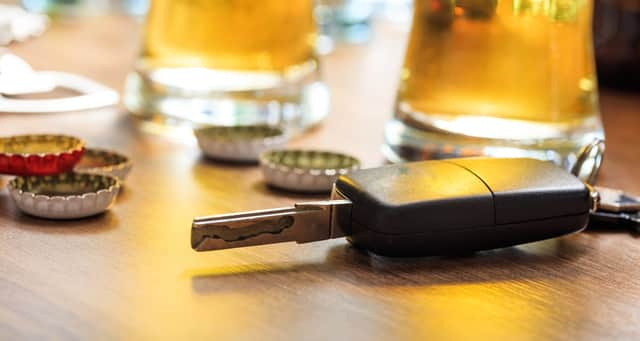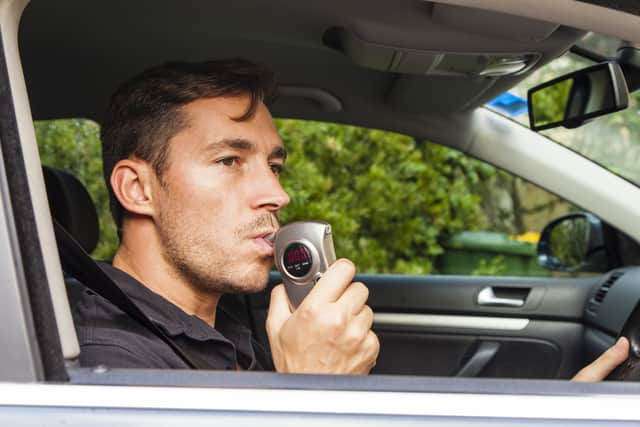What is the UK drink driving limit? How many units put you over the limit, and penalties explained


Drivers around the UK are being urged to understand the different drink-drive limits in different parts of the country as Christmas party season gets into full swing.
Every December sees police step up enforcement to detect and stop drink-drivers, whether it’s those taking a risk after a night out or those still unfit to drive the following day.
Advertisement
Hide AdAdvertisement
Hide AdDespite this and repeated awareness campaigns, drink driving-related casualties have changed very little in recent years and around 220 people were killed in 2020 in crashes where at least one driver was over the legal limit.
Police and road safety groups have once again repeated their message that you shouldn’t drive after even one drink, which is entirely sensible. But the law isn’t quite so clear-cut, so here’s what you need to know about the drink-driving limit in England, Wales, Scotland and Northern Ireland.
What is the UK drink drive limit?
The drink drive limit is not the same across the whole of the UK, with a lower limit in Scotland than in England, Wales and Northern Ireland. Despite what some people believe, the limit is also not linked to the number of units of alcohol consumed but is determined by the amount of alcohol measured in your blood or breath.
The maximum blood alcohol limit in England, Wales and Northern Ireland is 80mg of alcohol per 100ml of blood (80mg/100 ml). The maximum “breath” limit is 35 micrograms of alchohol per 100 millilitres of breath. In Scotland, it is 50mg of alcohol per 100ml blood, or 22 micrograms per 100 millilitres of breath.
Advertisement
Hide AdAdvertisement
Hide AdThe drink drive limit is not directly linked to the number of units of alcohol consumed. This is because the number of units required to put a person over the blood alcohol limit is affected by everything from your age and weight to what you have eaten recently and even your stress levels.
What are the penalties for drink driving?
The exact punishment is down to the courts but you can be fined, banned and even jailed if found guilty of drink driving. In Scotland you can also have your car seized.
Different offences attracting more or less severe penalties, with the Government offering the following guidelines:
Being in charge of a vehicle while above the legal limit or unfit through drink
You may get:
- 3 months’ imprisonment
- up to £2,500 fine
- a possible driving ban
Driving or attempting to drive while above the legal limit or unfit through drink
You may get:
- 6 months’ imprisonment
- an unlimited fine (up to £5,000 in Scotland and Northern Ireland)
- a driving ban for at least 1 year (3 years if convicted twice in 10 years)
- Forced to resit the driving test (Northern Ireland)
Refusing to provide a specimen of breath, blood or urine for analysis
You may get:
- 6 months’ imprisonment
- an unlimited fine (Up to £5,000 in Scotland and Northern Ireland)
- a ban from driving for at least 1 year
- Forced to resit the test (NI)
Causing death by careless driving when under the influence of drink
You may get:
- 14 years’ imprisonment
- an unlimited fine
- a ban from driving for at least 2 years
- Forced to sit an extended driving test before your licence is returned


You may be able to reduce your ban by taking a drink-drive rehabilitation scheme (DDRS) course if you’re banned from driving for 12 months or more. It’s up to the court to offer this.
In England, Wales and Scotland, you will not automatically have your licence returned after a ban if the court deems you to be a high-risk offender.
Comment Guidelines
National World encourages reader discussion on our stories. User feedback, insights and back-and-forth exchanges add a rich layer of context to reporting. Please review our Community Guidelines before commenting.
